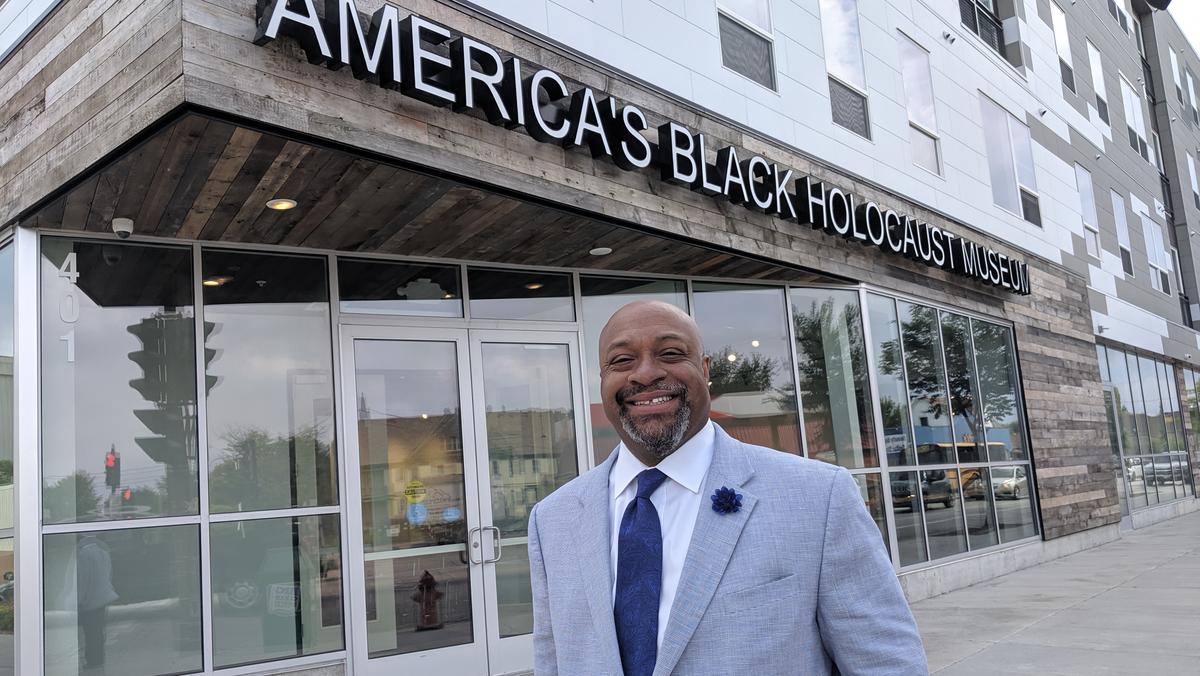Imagine a place where the echoes of a forgotten past resound, where the stories of resilience against unimaginable cruelty come alive, and where the collective spirit of a people, scarred but unbroken, is honored. This space exists in Milwaukee, Wisconsin, within the walls of the America’s Black Holocaust Museum. A poignant reminder of the brutal realities of racial prejudice, the museum stands as a beacon of hope, demanding accountability and fostering understanding.

Image: alchetron.com
More than just a museum, America’s Black Holocaust Museum is a living testament to the enduring strength of the Black community. Its creation is deeply rooted in the personal narrative of its founder, James Cameron, a survivor of the harrowing experiences of racial terror and discrimination during the Jim Crow era. The museum bears witness to a period in American history that remains shrouded in pain and denial for many – a period the museum aptly calls, “The Black Holocaust.”
Understanding the Black Holocaust: A Deeper Look
The term “Black Holocaust” is often met with confusion, even resistance, and it’s crucial to unpack the complexities surrounding it. This designation acknowledges the horrific experiences endured by African Americans, not as a literal holocaust, but as an analogy highlighting the systematic, brutal oppression, dehumanization, and violence faced by a people.
While the term may be contentious for some, it holds significant weight within the context of Black history. It reflects the deeply embedded racial prejudice, the brutal realities of slavery, the lynchings, forced displacement, segregation, and the ongoing struggle for equality. This horrific period wasn’t the result of a single event, but rather a continuous assault on Black lives, orchestrated through social, economic, and legal systems designed to perpetuate inequality and maintain white supremacy.
A Museum Built on Testimony: Preserving the Memory of a Troubled Past
The museum’s core mission lies in preserving the memory of this traumatic period. It meticulously showcases the stories and artifacts that represent the resilience and strength of a people forced to endure unspeakable hardships. Within its halls, authentic testimonies, heartbreaking photographs, and powerful exhibits bring to life the historical realities of the Black experience.
The museum doesn’t shy away from the raw truth. It showcases the chilling legacy of lynchings, the insidiousness of Jim Crow laws, and the persistent violence faced by Black people. It confronts the complexities of racism in a direct, unflinching manner, but without succumbing to despair. It also shines a light on the undeniable strength of the Black community, showcasing their unwavering efforts to achieve equality and opportunity, despite incredible obstacles.
Beyond Exhibits: Creating a Legacy of Hope and Action
The museum extends beyond the static exhibits. It embodies a dynamic space for dialogue, reflection, and action. Through educational programs, workshops, and community engagement, the museum empowers individuals to become active agents of change. Its commitment to education and advocacy goes beyond simply recounting the past; it aims to inspire new generations to actively dismantle the structures of racism and build a more just society.

Image: www.bizjournals.com
The Importance of Collective Memory
The America’s Black Holocaust Museum serves as a powerful reminder of the collective memory of a people who survived unspeakable atrocities. Visiting this museum is not just about viewing exhibits; it is an experience that challenges visitors to confront their own biases, embrace empathy, and contribute to a more inclusive and equitable society. It prompts us to acknowledge the historical legacy of racism, actively engage in dismantling its present manifestations, and build a future where the horrors of a “Black Holocaust” are never allowed to repeat.
America’S Black Holocaust Museum
A Call to Action
The museum’s impact extends far beyond its physical walls. It calls for a collective commitment to promoting racial justice, challenging systemic inequalities, and fostering meaningful conversations about the legacy of racism. Each visit to the museum serves as a powerful reminder that the fight for racial equality is a continuous journey that demands collective action. If you seek to understand the complexities of American history, to confront the realities of racism, and to inspire meaningful change, visit America’s Black Holocaust Museum. There, you will find a space that resonates with profound honesty, resilience, and the urgent call for a future defined by justice and equality for all.





